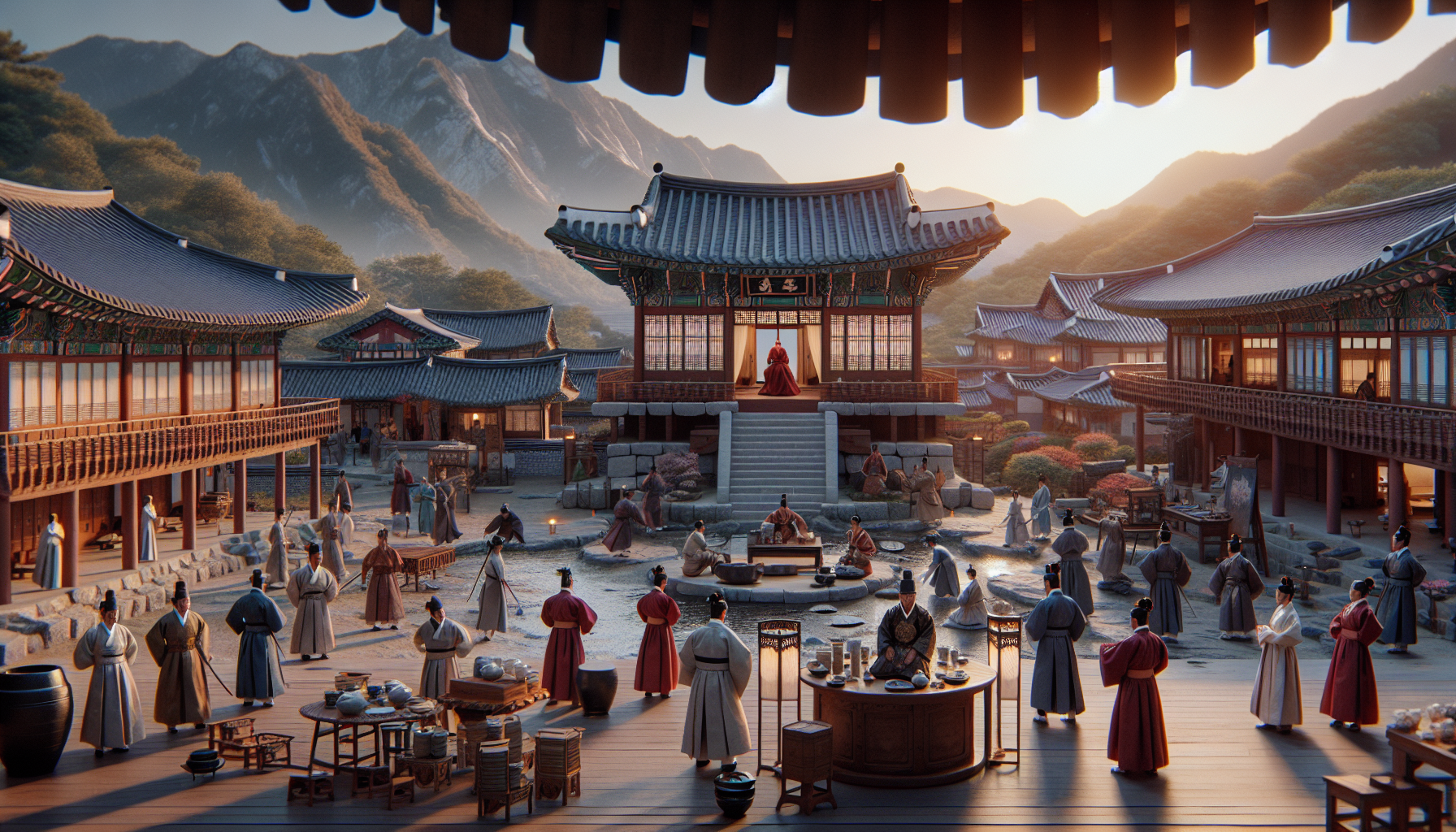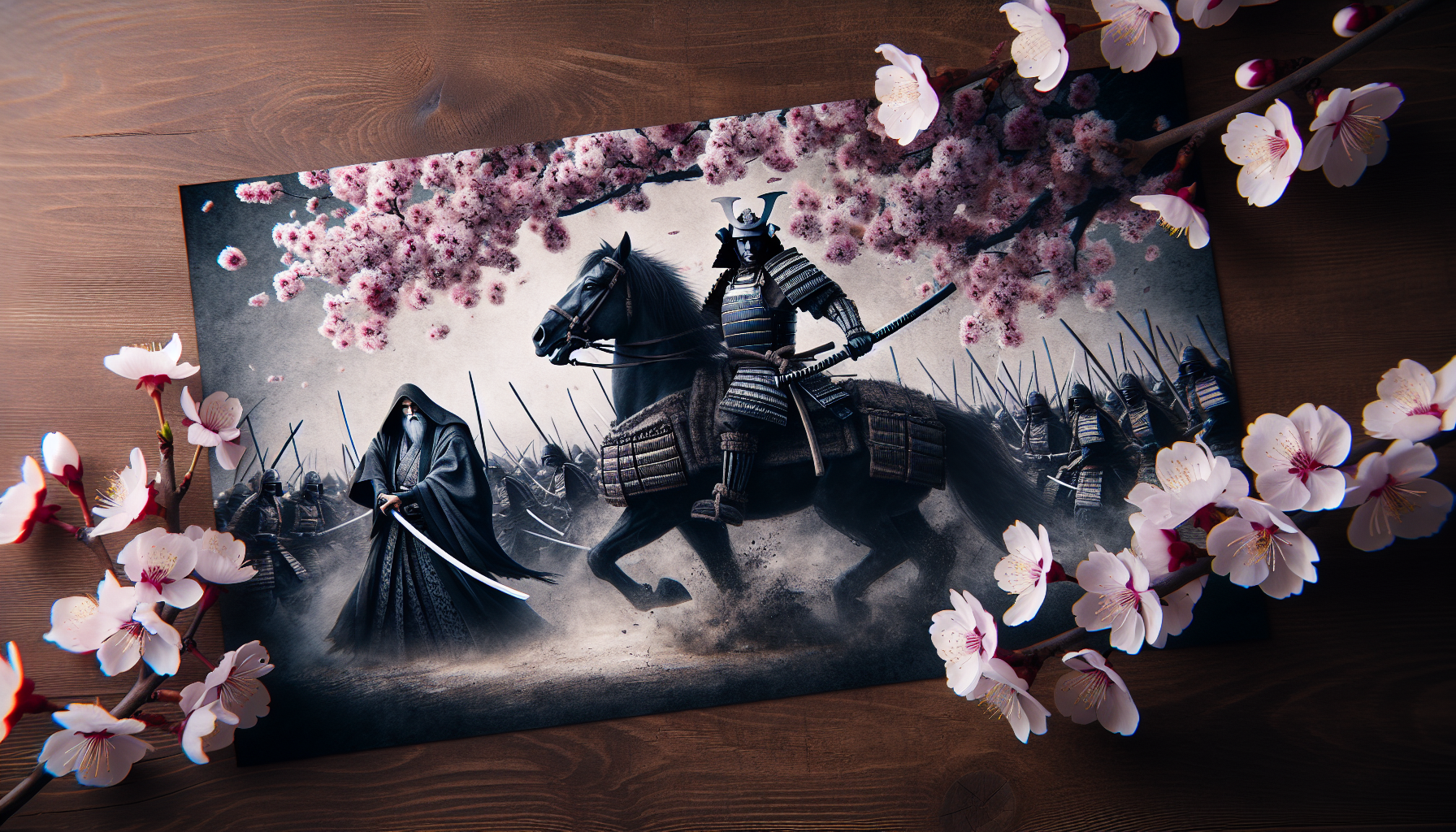Advertisements
The Joseon Dynasty, which ruled Korea for over 500 years, left a cultural legacy that influences contemporary society to this day. With its rich history, art, and traditions, the Joseon Dynasty played a pivotal role in shaping Korean cultural identity.
During the Joseon Dynasty, literature, music, art, and architecture flourished, resulting in a wealth of cultural heritage that is still celebrated and preserved in modern Korea. The influence of the dynasty can be seen in many aspects of Korean culture, from traditional cuisine to the ceremonies and festivals that are held throughout the year.
In addition, the Joseon Dynasty also left a lasting political and social legacy that shaped the structure of Korean society and influenced its institutions and values to this day. Reverence for tradition and respect for elders are just a few examples of the legacy left by the Joseon Dynasty.
Advertisements
Therefore, by exploring the influence of the Joseon Dynasty on contemporary Korean culture, we can better understand the richness and complexity of this society, and how ancient traditions and values continue to play a significant role in the lives of Koreans. The legacy left by the Joseon Dynasty is an essential part of Korean cultural identity and deserves to be studied and appreciated by anyone who wants to better understand the history and culture of this fascinating country.
The influence of the Joseon dynasty on contemporary Korean culture
The Joseon Dynasty, which ruled Korea from 1392 to 1910, left a cultural legacy that endures to this day. Its values, traditions, and customs continue to influence contemporary Korean society in a variety of ways. Let’s explore how this dynasty shaped Korean culture and how its legacy is still evident today.
Art and literature
During the Joseon Dynasty, art and literature flourished. Painters such as Shin Yun-bok and literati such as Jeong Yak-yong produced works that are still admired and studied in Korea. The art of calligraphy, which was highly valued at the time, is also a common practice among contemporary Koreans.
- Traditional Korean painting, known as “minhwa,” continues to be appreciated and practiced.
- Classical Korean literature such as “Sijo” and “Kasa” is still studied and celebrated.
- Korean calligraphy is taught in schools and is considered an art form in itself.
Architecture and clothing
The architecture of the Joseon Dynasty, characterized by curved roofs and vibrant colors, can still be seen in palaces and temples throughout Korea. The hanbok, the traditional Korean costume, is also a legacy of the Joseon Dynasty and is worn on special occasions and festivals.
Advertisements
- The Gyeongbokgung and Changdeokgung Palaces are impressive examples of Joseon Dynasty architecture.
- Hanbok is worn not only at festivals, but also at weddings and other traditional celebrations.
- Contemporary fashion in Korea often takes inspiration from hanbok, with designers reinterpreting traditional elements in a modern way.
Philosophy and ethics
Confucian philosophy, which was central to Joseon Dynasty society, still influences Korean ethics and values. Respect for elders, the importance of education, and the pursuit of social harmony are aspects of Korean culture that have their roots in Confucian philosophy.
- Respect for elders is a prominent feature of Korean society, reflected in the concept of “hyo” (filial piety).
- Education is highly valued in Korea, with many students striving to get into prestigious universities.
- The pursuit of social harmony, based on the notion of “jeong” (positive interpersonal relationships), is a pillar of Korean culture.

The Joseon Dynasty, which ruled Korea from 1392 to 1897, left a lasting legacy that continues to shape contemporary Korean culture in significant ways. One of the most evident aspects of this heritage is Korean cuisine, where traditional dishes such as kimchi and bulgogi remain central to the country’s diet. Kimchi, a dish of fermented vegetables, particularly cabbage, is one of the most iconic delicacies in Korean cuisine, and is a direct legacy of the Joseon Dynasty, when fermentation was an essential method of preserving food. Bulgogi, a grilled marinated beef, also dates back to this era, and is a popular dish at family dinners and festive ceremonies, symbolizing the continuity of Korean food traditions.
Furthermore, the spiritual practices that prevailed during the Joseon Dynasty still influence Korea’s religious and philosophical life. Shamanism and Buddhism, which flourished during this period, continue to be central to Korean spirituality. Shamanic rituals and Buddhist ceremonies are ways in which Koreans connect with the divine and nature, reflecting a deep respect for harmony and balance, values that were strongly promoted during the Joseon era.
Traditional Korean music, or “gugak,” also preserves the cultural heritage of the Joseon Dynasty. Instruments such as the gayageum (a type of zither) and the janggu (a double-sided drum) continue to be used in gugak performances, whose melodies harken back to the compositions and musical styles of the Joseon era. These musical elements not only celebrate tradition, but also serve as a link between the past and the present, keeping the memory of this historic dynasty alive.
Thus, the Joseon dynasty continues to be a source of inspiration and pride for Koreans, permeating many facets of the country's daily and cultural life.
Conclusion
In short, the Joseon Dynasty had a profound influence on contemporary Korean culture, shaping fundamental aspects that are still valued and celebrated today. From art and literature to architecture and clothing, the legacies left by this dynasty continue to inspire and enrich Korean society. Through traditional painting, classical literature, palace architecture, and the wearing of hanbok, the Joseon Dynasty left an indelible mark on Korea’s cultural identity. Furthermore, the Confucian philosophy that permeated Joseon society still guides the ethical and moral values of Koreans, promoting respect for elders, the importance of education, and the pursuit of social harmony.
The lasting impact that the Joseon Dynasty has had on the formation of contemporary Korean culture is undeniable. Its traditions and customs continue to be revered and preserved, demonstrating how a people’s history can transcend centuries and remain a living, breathing cultural treasure. The legacy left by the Joseon Dynasty is a constant reminder of the richness and diversity of Korean culture, enriching not only the past, but also the present and future of this incredibly resilient people.




